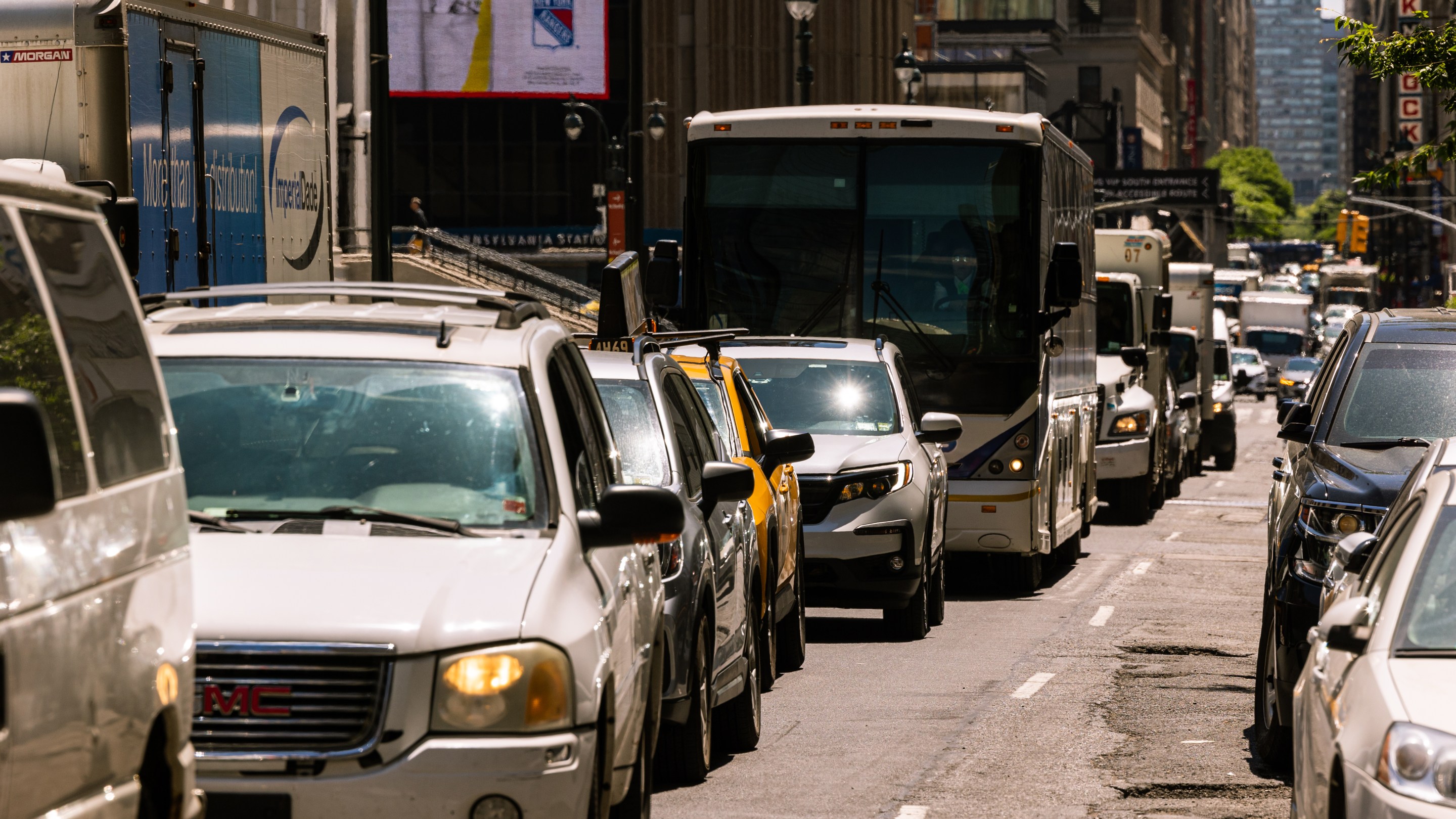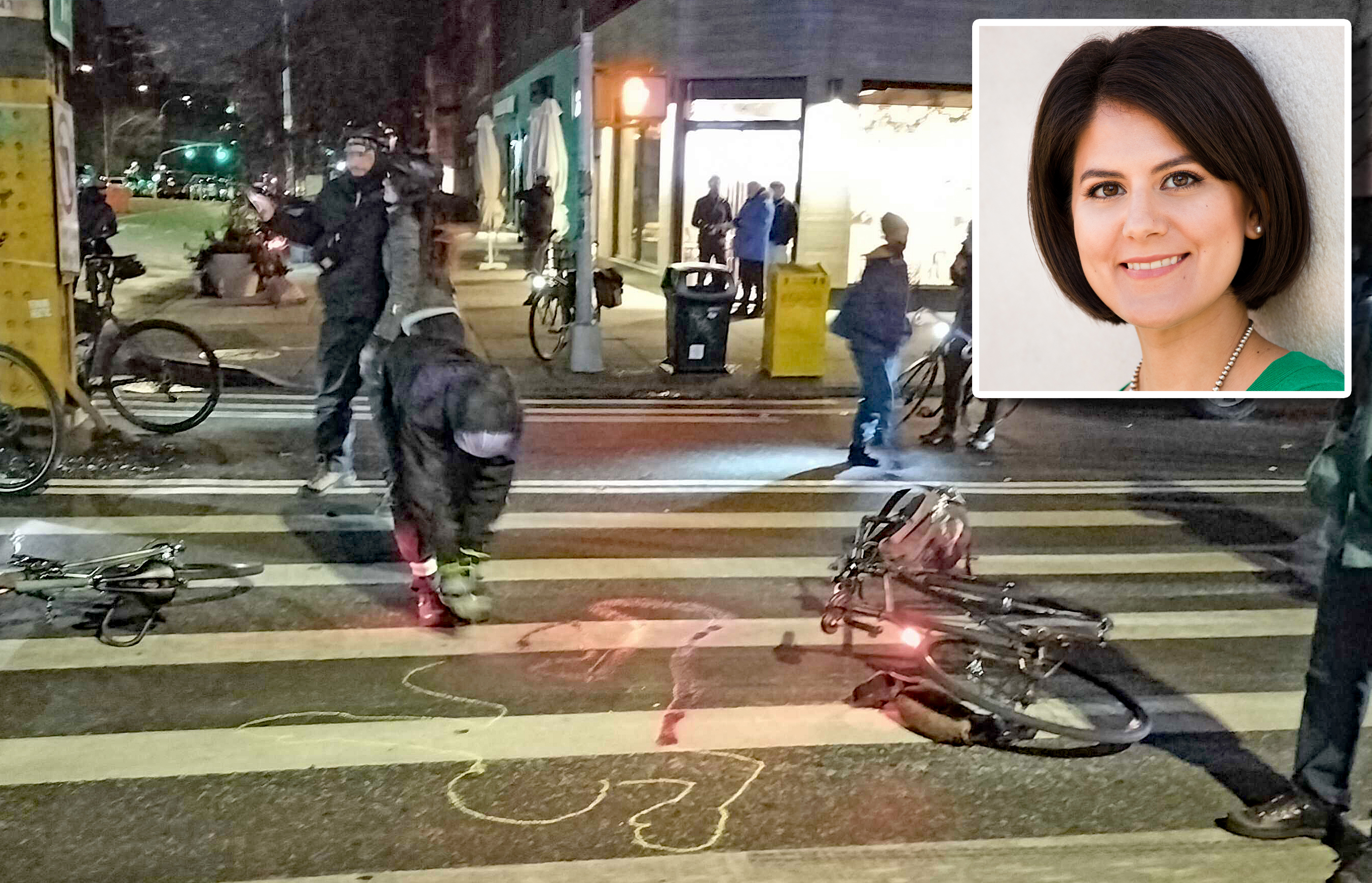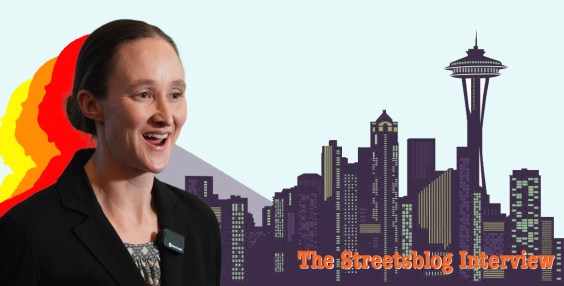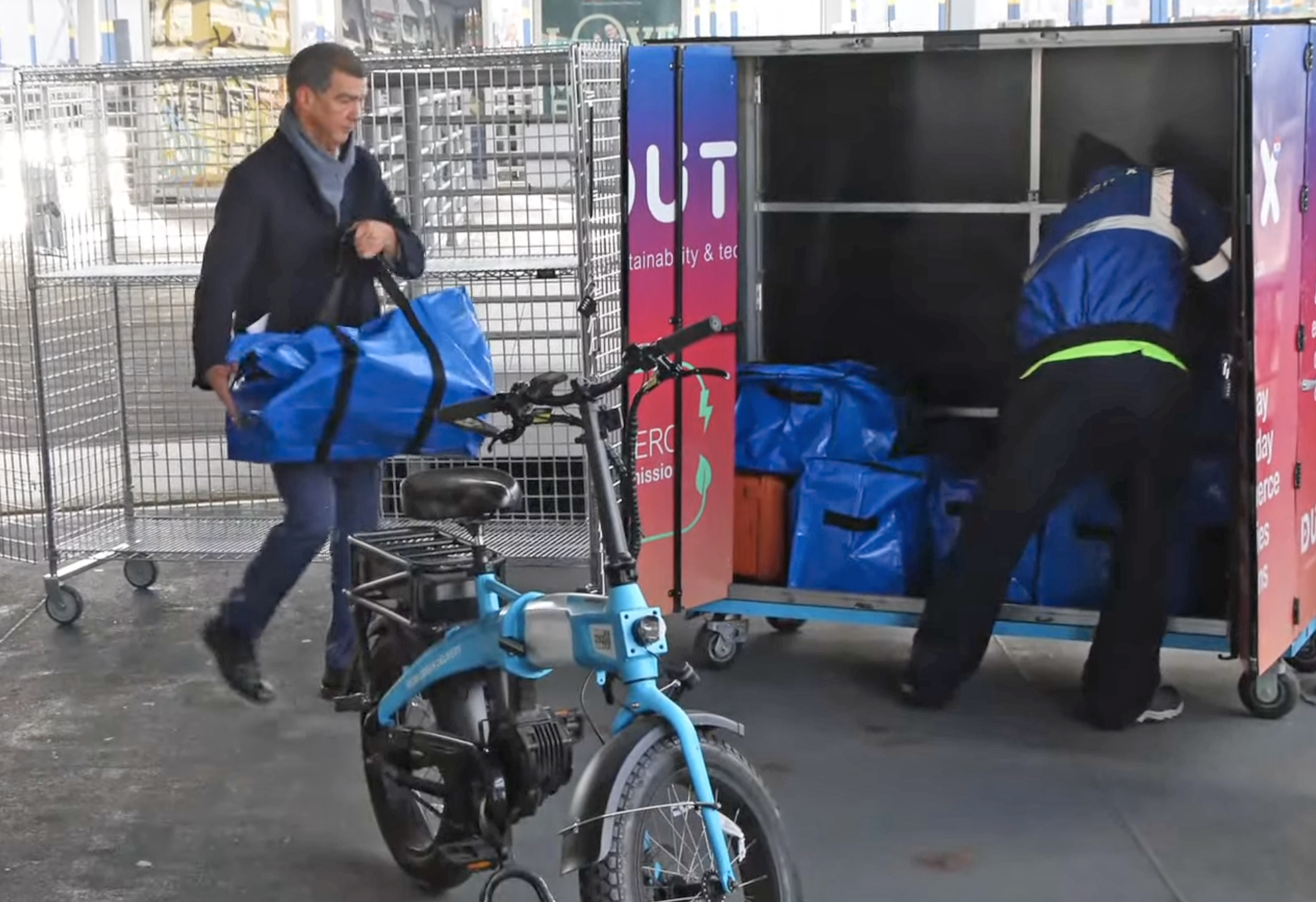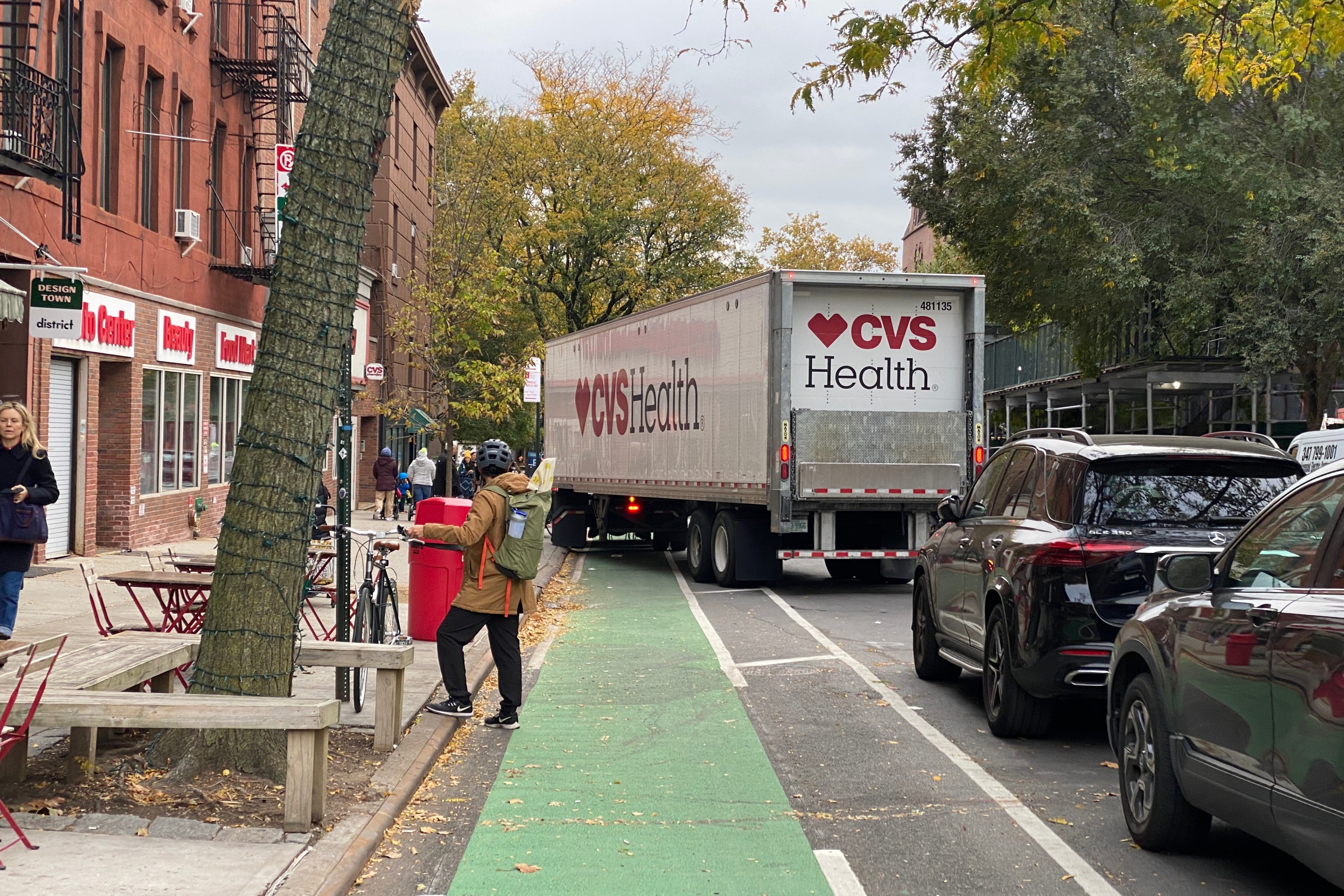Traffic in Manhattan's Central Business District and Midtown is moving slower than ever, newly crunched data shows — with no relief from congestion pricing on the way thanks to Gov. Hochul.
Average speeds in the CBD for 2024 dropped below 7 miles per hour last month, according to taxi and for-hire vehicle speed data analyzed by former city Traffic Commissioner Sam "Gridlock Sam" Schwartz.
Traffic moved just 6.8 mph in the CBD and 4.6 mph in Midtown last month — the slowest June on record, Schwartz told Streetsblog.
"People talked about approaching 'the speed of sound' as a big achievement at one time. New York City is approaching walking speed in 2024," Schwartz said.
The taxi data Schwartz crunched dates back to 2010, when the average CBD speed for the year was 9.2 mph, and the average Midtown speed was 6.4 mph — meaning speeds have dropped by 25 percent in the 14 years since.
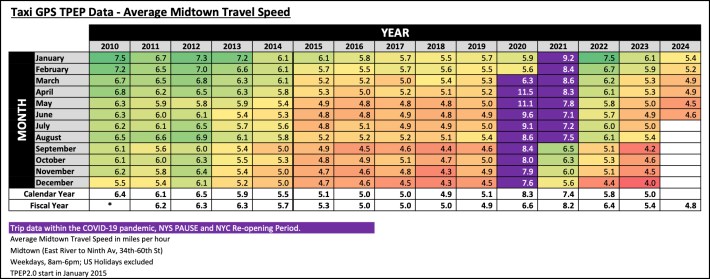
Average Midtown auto speeds stood at 7.1 mph in 1971, when the city still measured them by sending Traffic Department officials into the field with watches, said Schwartz, who started his municipal career that year.
"If you're taking a cab two and a half miles, it used to take you 20 minutes. It's now taking you far more than a half hour," he explained. "For the cab driver, it means you do fewer trips... It's bad for our health, it's bad for the planet, it's bad for business and it's bad for New York."
Congestion pricing tolls, which the MTA was set to charge once per day on vehicles that enter Manhattan below 60th Street, would have reduced the number of cars and trucks in the CBD by 17 percent, according to official forecasts.
While Hochul insisted in the announcement of her congestion pricing "temporary pause" that "circumstances have changed" in the CBD since the state passed the law requiring the tolls in 2019, Manhattan traffic in fact moves slower today than it did before the Covid-19 pandemic, the taxi data shows.

And while Hochul claimed she would "tackle congestion in other ways," she has not put forward any plans to do so — or to replace the money the tolls would have raised, for that matter.
Schwartz, a longtime congestion pricing advocate who promised to pop champagne once the first car was tolled on June 30, pushed back on claims that the city's post-Covid circumstances necessitated a different approach.
"We're worse off than we were pre-Covid," said Schwartz. "Traffic volumes are about 2 to 3 percent higher than they were in 2019, and truck volumes are about 10 to 15 percent higher."
"People seem to have lost the point with congestion pricing — that it's to deal with congestion," the longtime city traffic observer added. "It's not just the CBD that's suffering, it's everyone who's on expressways or parkways and in local communities."
Hochul's office did not return a request for comment.
